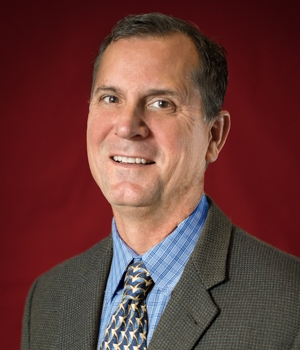In November 2016, Stephen Curry of the NBA Golden State Warriors entered a game against the New Orleans Pelicans – after scoring no points the previous night – and set a new single-game record for completing three-point shots. Curry drained 13 three-pointers in this game, and this was not the first time he had accomplished this feat!
Amazingly, Curry has now reached double-digit three-pointers seven times in a single game in his career. He also became just the third player in NBA history to hit double-digit three-point field goals after netting zero in his previous game.
Predictably, the next day the journalists who cover the NBA could talk/write about nothing but Curry “being in the zone.” This mental state – where everything seems to go right – occurs often among high-performance athletes and other highly trained professionals, and many of them have pondered how this state can be attained every time they perform.
A State of Supreme Focus
In an article for Peak Performance Sports, Dr. Patrick Cohn notes, “All athletes love the magical, sought after state of mind known as the ‘zone.’ This state of supreme focus helps athletes in all sports perform at their peak. Athletes who want to reach their peak potential are always in search of secrets to hop into the zone. But the zone is really not that complicated or hard to achieve when the right mental game strategies are put into place.
“What really is the zone? The zone is simply a mental state of total involvement in the present moment. I like the word ‘immersed’ as it indicates you lose yourself (or your sense of self) when you perform, which is how some athletes describe the zone. Being in the zone is a state of total involvement in a task without the mental burden of worry, doubt or fear about results.
“With pinpoint focus, fear of failure, worry, doubt, indecision and other mental traps are forbidden from entering your conscious mind. In this state of concentration, mental distractions struggle to compete for your attention, but lose the battle.”
A Spine Surgeon in the Zone
 Surgeons, such as Dr. Michael Hisey of Texas Back Institute, must perform at a high level every time they step into the operating room. In many cases any error – no matter how small – can be catastrophic for the patient. Plus, surgeries can take hours to complete, and it is absolutely critical that the surgeon’s intense concentration remain high throughout the procedure.
Surgeons, such as Dr. Michael Hisey of Texas Back Institute, must perform at a high level every time they step into the operating room. In many cases any error – no matter how small – can be catastrophic for the patient. Plus, surgeries can take hours to complete, and it is absolutely critical that the surgeon’s intense concentration remain high throughout the procedure.
As someone who is recognized internationally as one of the best in his profession, Dr. Hisey was asked if it is possible for a surgeon to get into a high-performance zone when he is operating on a patient’s spine.
“I absolutely believe it is possible for a surgeon to get into this state,” he said. “In fact, it happens to me regularly. If a surgery is getting stressful and there are many things happening at once, I will notice that things seem to slow down, distractions in the room seem to go away, I am able to really focus on what I’m doing and the surgical instruments seem to move very intuitively.
“It’s not always easy to start an operation in this state. You have to ‘get there’ through the procedure. In some cases, I will get into a surgery and think ‘wow, this is going to be a tough one.’ There may be lots of noise going on in the room, I’m hearing all of that and having a difficult time getting started. However, once I get started, I will tune out everything but the procedure. Everything fades into the background. It’s not that I’m unaware of everything going on. For example, if the anesthesiologist says something to me, I process this information but I am not distracted by it. I simply have tunnel vision where I’m able to focus on what I’m doing.”
What’s it like to be in the Zone?
“Being in this state of high-level concentration is almost like being hypnotized, but not quite,” Dr. Hisey said. “Everyone has had the experience of driving on the highway while thinking about something and then realizing that they have gone 10 miles. They’ve not made any mistakes but have moved forward without realizing it. My zone is like that but with the focus on the procedure. The passage of time becomes completely unimportant. You don’t notice it.
“In this state, I am very clearly seeing what the next steps of the operation are, where the pitfalls might lie and how they are going to be avoided. It’s a great feeling.
“When the difficult part of the operation is completed, I take a deep breath, reassess reality and look at the clock to see what time it might be. I really have no idea how many hours have passed during the surgery.”
Learning to Get in the Zone
Just as every professional athlete wants to be able to effortlessly get into a high-performance state each time they compete, young surgeons are also eager to share this ability. Can any surgeon learn to get into the zone?
“Honestly, I don’t know how I learned to get into this state of immersion,” Dr. Hisey chuckled. “I think it’s a matter of getting really good at something, over time and with the experience of performing hundreds of procedures. I think most surgeons get into some type of zone, whether they know it or not. For the most part, surgeons have the ability to focus their attention very well.
“I believe that surgeons are like athletes in their ability to get into this performance zone, and in an article, I recently read on this subject, the author noted that surgeons must train like athletes. That rings true to me. We also learn how to tune out the external distractions, just as an athlete does, and get better outcomes for our patients by doing this.
“I think the hours and hours of training that every surgeon must go through allow him or her to focus on the job at hand. I don’t think a young surgeon can come into an operating room and expect to immediately get in that state of concentration. It takes time and experience in order to get to this performance level.
“When we bring a new surgeon into our practice, we have senior surgeons reviewing their patients beforehand and then operating with them for the first month or so. This mentoring is designed to get them more comfortable in a surgical setting.
“We also have a fellowship program where we train residents who have completed orthopedic and neurosurgery residencies in the specialty of spine surgery. Through this type of mentoring, we are giving them the tools where they can refine them and eventually get into that highly focused zone.”
World class spine surgery and treatment are available at Texas Back Institute. If you are experiencing back pain, contact us for an appointment.
To hear the complete interview with Dr. Hisey, click on SpineTalk below.

